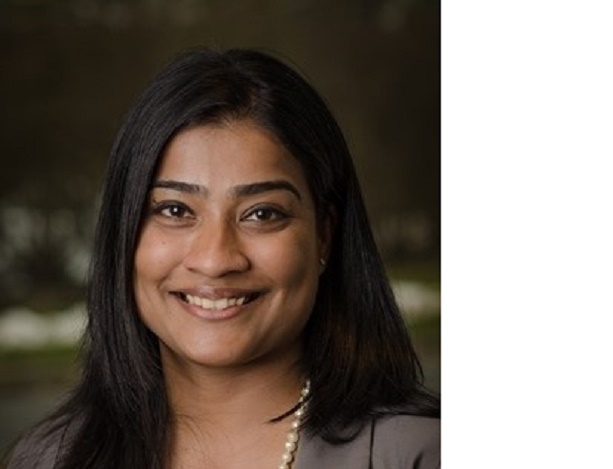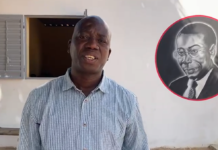By Asha Varghese
Africa is rising, according to various economic analysts. The rise brings with it an increase in urbanization and a population influx in the continent’s big cities. The streets of Abidjan, Conakry, Kinshasa and Nairobi are bustling with all sorts of activity. Increased investments in agriculture, among other key sectors, has led to more economic activity in the rural areas of Africa. There has never been a more hopeful time in the history of Africa. Multilateral organizations such as the United Nations and the African Union have concluded that with such an unprecedented population boom, access to healthcare must be prioritized by policy makers, and most national development plans reflect this need. In 2016, the UN revealed that Africa was now home to 1.2 billion, up from 477 million in 1980. The continent grew by 30 million in 2016 alone and by the year 2050, it was projected that annual increases would exceed 42 million per year.
However, access to safe surgery, and particularly anesthesia, is still rare in most parts of the continent. The World Federation of Societies of Anesthesiologists (WFSA) has found that wealthy countries, like the U.S. and Germany, have 20 to 30 anesthesiologists for every 100,000 people; but in sub-Saharan Africa and parts of Asia, there were often fewer than one for every 100,000 people. This means that when a woman faces complications during child labor, an elderly person breaks a bone in a car accident or a young man needs surgery for an appendectomy, if there is no anesthesia care provider, the patients usually do not get the surgery they need; exponentially increasing the likelihood of death. The statistics are not reassuring. The World Health Organization (WHO) states that C-sections are an essential treatment for 5-15% of all deliveries.[1] In Kenya, only 3.21% of the rural poor and 2.69% of the urban poor receive C-sections. Proper anesthesia is an important part of being able to provide C-sections. Health facilities in the developing world providing C-sections lack trained anesthesia providers more than they lack surgeons.[2] This gap is not only putting lives at risk in the most vulnerable places on the planet, it also has an economic cost. According to the World Bank, for every dollar invested in anesthesia, countries get $10 back in productivity.
ImPACT Africa’s[3] initiatives in Kenya provide a case study of how countries across Africa can begin to scale anesthesia capabilities to avoid loss of life, educate more providers, and facilitate safe surgeries. With the buy-in of policy makers and an enabling environment for the implementation of national and continental healthcare agendas, the program has been able to achieve considerable impact in a relatively short time and build a scalable model that could save millions of lives in Africa.
Established in 2014, ImPACT Africa focuses on training anesthesia providers, developing curriculum informed by current trends and practices, data collection and research, and building the capacity of local trainers to effectively train others in anesthesia. Currently working primarily in Western Kenya, the program targets students, educators and trainers to build capacity. ImPACT Africa trained 108 anesthetists in Kenya by 2017.
The program’s graduates now work in 40 of the 47 counties in Kenya, and there has been an important increase of Kenya counties with Registered Nurse Anesthetists (from 34% to approximately 83%). In addition, 41 trainers have been trained to continue educating anesthetist care providers. By reinforcing the capacity of local hospitals in this way, in a country where healthcare is still a major concern for the average person, more patients can rest assured of access to potentially lifesaving anesthesia and care before, during and after surgery.
ImPACT Africa also emphasizes quality. Anesthesiology is complex and can be hazardous. If not performed properly, the outcome could be negative for the patient. ImPACT Africa develops curriculum and implements a train the trainer approach, including mobile simulation training, which ensures quality control in the transfer of knowledge that benchmarks itself against international standards. Additionally, the ImPACT program has improved educational quality of anesthetists using simulation training in 2 state-of-the-art simulation centers, which allows students to practice common and uncommon real-world scenarios without fear of harming patients. The model is highly replicable from Kenya to other African countries.
A healthy population is generally also a productive one. Africa rising to its full potential is a goal which cannot be attained until the basic human right to health (and by extension, life) is prioritized. Strengthening the continent’s emergency and essential surgical care and anesthesia as a component of universal health coverage is vital for development and growth. ImPACT Africa’s work in Western Kenya, although currently performed at a relatively small scale, is contributing to Kenya Health Sector Strategic and Investment Plan (KHSSIP) which is meant to ensure facilities provide emergency surgical and anesthesia care. The model could significantly contribute to meeting the continent’s sustainable development goals.
Giving birth in Nairobi or any of Africa’s towns should not be an exercise that causes future mothers anxiety to the point where they fear death or irreparable complications because an anesthesiologist is unavailable. After all, anesthesia should be a human right not a luxury. The lack thereof definitely does not belong in this century.
*This program is funded by GE Foundation with scaling funds from The ELMA Foundation. Partners to the program include Vanderbilt University Medical Center, Center for Public Health & Development, Kijabe AIC Hospital, and Assist International.
[1] https://mhnpjournal.biomedcentral.com/articles/10.1186/s40748-016-0033-x
[2] http://www.ajog.org/article/S0002-9378(14)00476-1/fulltext
[3] Improving Perioperative and Anesthesia Care Training (“ImPACT”)








